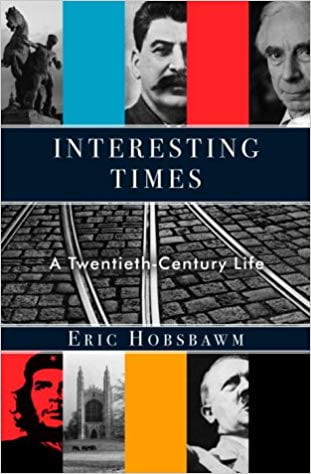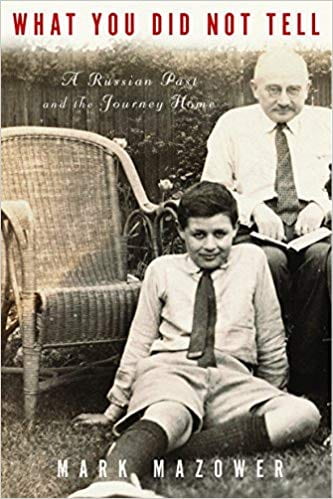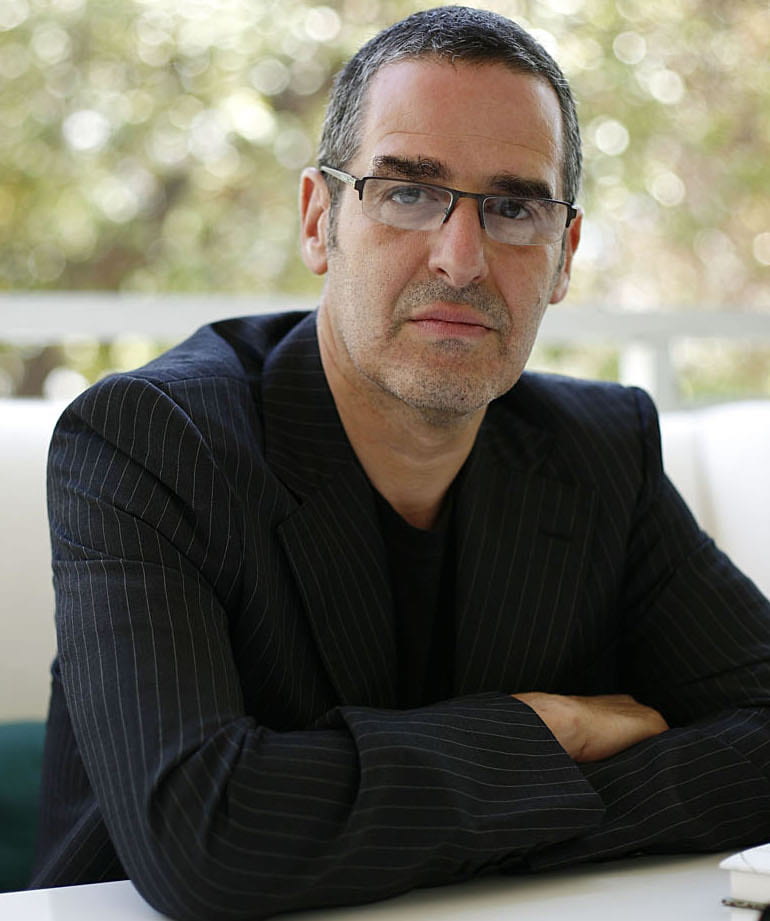By Contributing Editor Pranav Kumar Jain

Eric Hobsbawm, Interesting Times (2002)
During a particularly bleak week in the winter of 2013, I picked up a copy of Eric Hobsbawm’s modestly titled autobiography Interesting Times: A Twentieth-Century Life (2002), perhaps under the (largely correct) impression that the sheer energy and power of Hobsbawm’s prose would provide a stark antidote to the dullness of a Chicago winter. I had first encountered Hobsbawm the year before when he had died a day before my first history course in college. The sadness of the news hung heavy on the initial course meeting and I was curious to find out more about the historian who had left such a deep impression on my professor and several classmates. Over the course of the next year or so, I had read through several of his most important works, and ending with his autobiography seemed like a logical way of contextualizing his long life and rich corpus.
Needless to say, Interesting Times was an absolutely riveting read. Hobsbawm’s attempt to bring his unparalleled observational skills and analytical shrewdness to his own work and career revealed a life full of great adventures and strong convictions. Yet throughout the book, apart from marveling at his encounters with figures like the gospel singer and civil rights activist Mahalia Jackson, I was most stuck by what can best be described as the intersection of historical techniques and personal memory. Though much of the narrative is written from his prodigious memory, Hobsbawm regularly references his own diary, especially when discussing his days as a Jewish teenager in early 1930s Berlin and then as a communist student in Cambridge. In one instance, it allows his later self to understand why he didn’t mingle with his schoolmates in mid-1930s London (his diary indicates that he considered himself intellectually superior to the whole lot). In another, it helps him chart, at least in his view, the beginnings of peculiarly British Marxist historical interpretations. Either way, I was fascinated by his readings of what counts as a primary source written by himself. He naturally brought the historian’s skepticism to this unique primary source, repeatedly questioning his own memory against the version of events described in the diary and vice versa. This inter-mixing of personal memory with the historian’s interrogation of primary sources has long stayed with me and I have repeatedly sought out similar examples since then.
In recent years, there has been a remarkable flowering of memoirs or autobiographies written by historians. Amongst others, Carlos Eire and Sir J. H. Elliott’s memoirs stand out. Eire’s unexpectedly hilarious but ultimately depressing tale of his childhood in Cuba is a moving attempt to recover the happy memories long buried by the upheavals of the Cuban Revolution. In a different vein, Elliott ably dissects the origins of his interests in Spanish history and a Protestant Englishman’s experiences in the Catholic south. The intermingling of past and present is a constant theme. Elliott, for example, was once amazed to hear the response of a Barcelona traffic policeman when he asked him for directions in Catalan instead of Castilian. “Speak the language of the empire [Hable la lengua del imperio],” said the policeman, which was the exact phrase that Elliott had read in a pamphlet from the 1630s that attacked Catalans for not speaking the “language of the empire.” As Elliott puts it, “it seemed as though, in spite of the passage of three centuries, time had stood still” (25). (There are also three memoirs by Sheila Fitzpatrick and one by Hanna Holborn Gray, none of which, regrettably, I have yet had a chance to read.)

Mark Mazower, What You Did Not Tell (2017)
Yet, while Eire and Elliott’s memoirs are notably rich in a number of ways, they have little to offer in terms of the Hobsbawm-like connection between historical examination and personal memory that had started me on the quest in the first place. However, What You Did Not Tell (2017) Mark Mazower’s recent account of his family’s life in Tsarist Russia, the Soviet Union, Nazi Germany, France, and the tranquil suburbs of London provides a wonderful example of the intriguing nexus between historical research and personal memory.
In some ways, it is quite natural that I have come to see affinities between Hobsbawm’s autobiography and Mazower’s memoir. Both are stories of an exodus from persecution in Central and Eastern Europe for the relative safety and stability of London. But the surface level similarities perhaps stop there. While Hobsbawm, of course, is writing mostly about himself, Mazower is keen to tell the remarkable story of his grandfather’s transformation from a revolutionary Bundist leader in the early twentieth-century to a somewhat conservative businessman in London (though, as he learned in the course of his research, the earlier revolutionary connections did not fade away easily and his grandparents’ household was always a welcome refuge for activists and revolutionaries from across the world.) However, on a deeper level, the similarities persist. For one thing, the attempt to measure personal memories against a historical record of some sort is what drives most of Mazower’s inquiries in the memoir.
The memories at work in Mazower’s account are of two kinds. The first, mostly about his grandfather whom he never met (Max Mazower died six years before his grandson Mark was born), are inherited from others and largely concern silences—hence the title What You Did Not Tell. Though Max Mazower was a revolutionary pamphleteer, amongst other things, in the Russian Empire, he kept quiet about his radical past during his later years. His grandfather’s silence appears to have perturbed Mazower and this plays a central role in his bid to dig deeper in archives across Europe to uncover traces of his grandfather’s extraordinary life. The other kind of memories, largely about his father, are more personal and urge Mazower to understand how his father came to be the gentle, practical, and affectionate man that Mazower remembered him to be. Naturally, in the course of phoning old acquaintances, acquiring information through historian friends with access to British Intelligence archives, and pouring through old family documents such as diaries and letters, Mazower’s memories have both been confirmed and challenged.

Mark Mazower
In the case of his grandfather, while Mazower is able to solve quite a few puzzles through expert archival work and informed guessing, there are some that continue to evade satisfactory conclusion. Perhaps the thorniest amongst these is the parentage of his father’s half-brother André. Though most relatives knew that André had been Max’s son from a previous relationship with a fellow revolutionary named Sofia Krylenko, André himself came to doubt his paternity later in life, a fact that much disturbed Mazower’s father, who saw André’s doubts as a repudiation of their father and everything he stood for. Mazower’s own research into André’s paternity through naturalization papers and birth certificate appears to have both further confused and enlightened him. While he concludes that André’s doubts were most likely unfounded, a tinge of unresolved tension about the matter runs through the pages.
With his father, Mazower is naturally more certain of things. Yet, as he writes towards the beginning of the memoir, after his father’s death he realized that there was much about his life that he did not know. In most cases, he was pleasantly surprised with his discoveries. For instance, he seems to take satisfaction in the fact that, in his younger years, his father had a more competitive streak than he had previously assumed. But reconstructing the full web of his father’s friendships proved to be quite challenging. At one point, he called a local English police station from Manhattan to ask if they could check on a former acquaintance of his father whose phone had been busy for a few days. After listening to him sympathetically, the duty sergeant told him that this was not reason enough for the police to go knocking on someone’s door. Only later did he learn that he was unable to reach the person in question because she had been living in a nursing home and had died around the time that he had first tried to get in touch.
The Pandora’s Box opened by my reading of Hobsbawm’s autobiography is far from shut. It has led me from one memoir to another and each has presented a distinct dimension of the question of how historical research intersects with personal memories. In Hobsbawm’s case, there was the somewhat peculiar case of a historian using a primary source written by himself. Mazower’s multi-layered account, of course, moves across multiple types of memories interweaving straightforward archival research with personal impressions.
While these different examples hamper any attempt at offering a grand theory of personal memory and historical research, they do suggest an intriguing possibility. The now not so incipient field of memory studies has spread its wings from memories of the Reformation in seventeenth and eighteenth-century England to testimonies of Nazi and Soviet soldiers who fought at the Battle of Stalingrad. Perhaps it is now time to bring historians themselves under its scrutinizing gaze.
Pranav Kumar Jain is a doctoral student at Yale where his research focuses on religion and politics in early modern England.




Leave a Reply